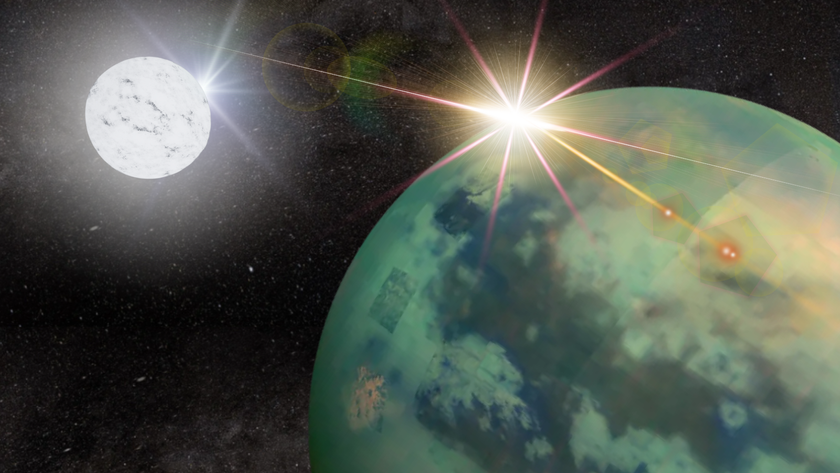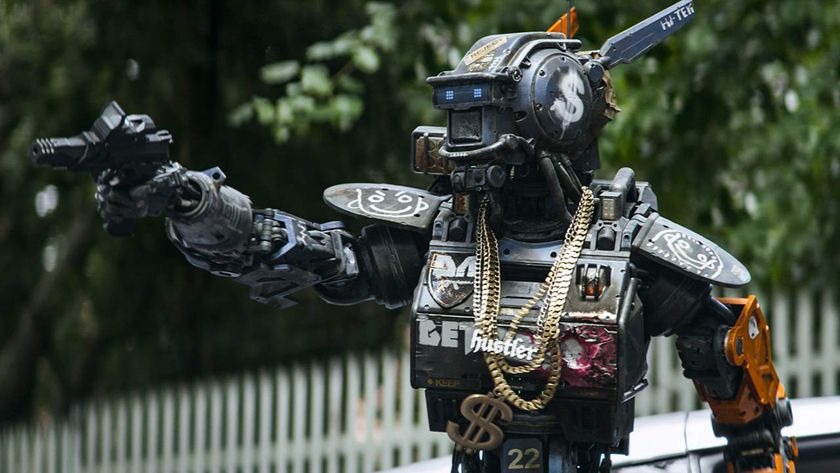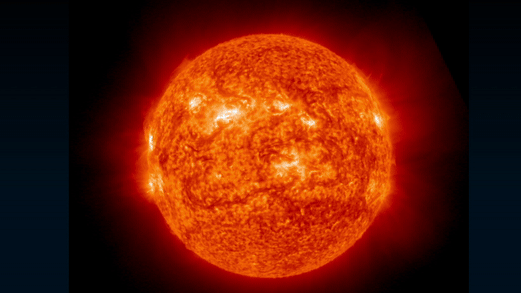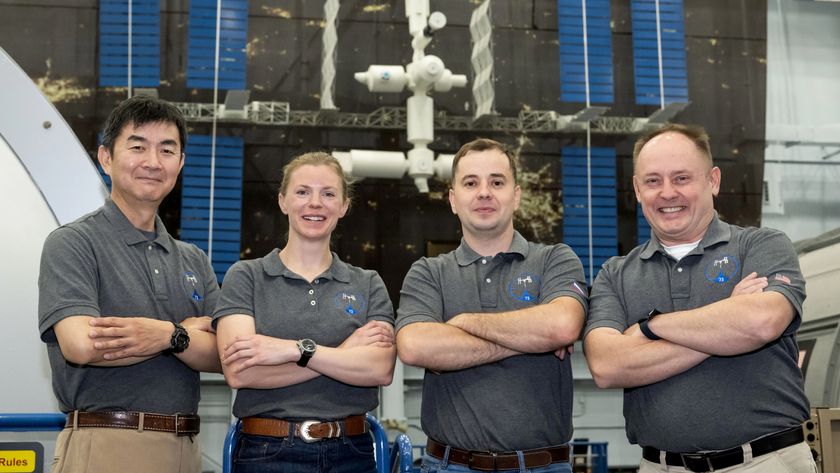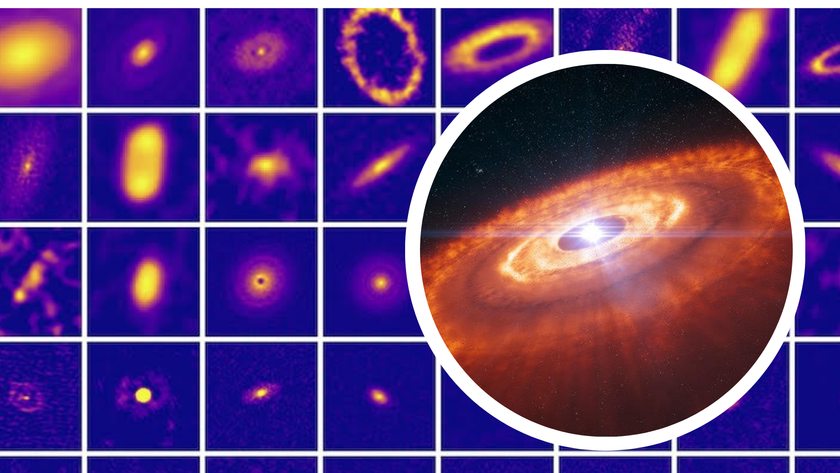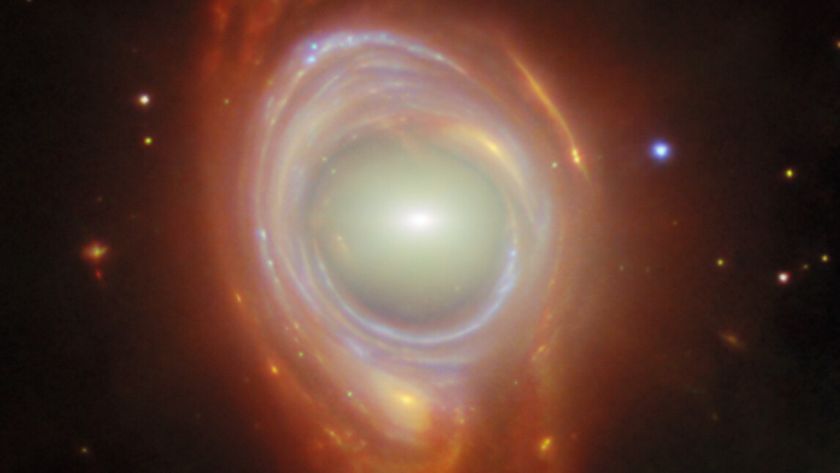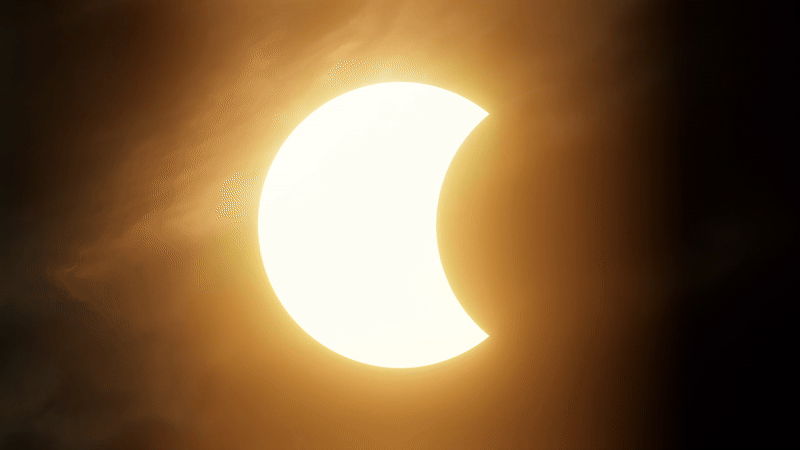First Person: False Alarm Leads to Once-in-a-Lifetime Shooting Star
PHOENIX -- Shortly after 4 o'clock this morning our smoke alarms went off, sending earsplitting beeps through the house. My wife and I got out of bed and made sure our 9-year-old son was up.
Annoyed and half-awake, we checked to confirm there was no fire. We've been through this before, and suspected a malfunction. However, it was possible that deadly carbon monoxide filled the air, and we would not know it, so we called 9-1-1, then went outside to wait for the fire department to arrive.
How fortuitous.
As I stood looking west, my wife and son facing me, a bright light appeared about 15 degrees above the horizon (your fist on an outstretched arm covers about 10 degrees of sky).
Without too much haste, it tracked northward along the horizon, a graceful streak of light created by a tiny rock from outer space, growing in intensity as it vaporized in the atmosphere tens of miles above Earth's surface.
Unless you are out looking for shooting stars, it takes a moment to realize you are seeing one. And by the time you do, and you point and say, "Look!" it is usually gone. I've had that happen several times when trying to show one to my son.
But this meteor just kept going.
Get the Space.com Newsletter
Breaking space news, the latest updates on rocket launches, skywatching events and more!
It was a bright greenish-blue, and it brightened significantly as orange streaks peeled off its sides as broke up in the atmosphere. I had time to wonder if it might hit the ground as I pointed and yelled, "Look!" three times. My sleepy wife and son were slow to turn around, but I physically grabbed them and twirled them westward, and they still saw about half of the event as the fireball raced far to the north before finally burning out and never reaching the ground. [Stunning meteor photos.]
I've written about bolides -- really bright meteors -- many times for SPACE.com. I enjoyed some doozies during the 2001 Leonid meteor shower. Some are created by bits of natural space debris no bigger than a pea, often chunks of asteroids or comets.
But I'd never seen one this bright or this long-lasting.
I want to say that at its peak it was about as bright as the full moon, but I know from fishing (and rattlesnake spotting) that non-experts like me tend to exaggerate exciting things like this (the 5-foot rattler in our back yard earlier this year turned out to be a 3-footer, photographic evidence subsequently revealed). I am certain it was at least two or three times as bright as Venus, the brightest object in the night sky other than the moon.
Most notable was how far across the sky this celestial interloper traveled and for how long.
I estimated (with my fist on my outstretched arm) that it covered about 60 or 70 degrees of sky. Put another way, it covered an area of the sky measured by stretching my arms out in front of me, my hands about 4 feet apart.
The meteor made no sound (some do) and it left a remarkably unremarkable trail -- some fireballs create smoke that lingers for many seconds. Larger objects are known to light up the whole sky, and sometimes bits will reach the ground, as happened with a Wisconsin fireball in April.
(Worth noting at this point: Fireballs have a natural look about them that is nothing like the infamous "Phoenix Lights," slower-moving objects reported as UFOs by many observers in 1997 and again in 2008 and later thought to be military flares and a hoax helium balloon/flare setup, respectively.)
As we stood and discussed the incredible sight (and, ironically, a similar one my wife and son saw one evening last week -- "Dad! The one Mom and I saw was just like this one, and you told me it was a once-in-a-lifetime thing.") four firemen arrived and confirmed the false alarm. The battery was dead in one of the units. We felt bad for having woken them, and I felt worse when I asked if they'd seen the shooting start on their way over and they had not. I know most of their trip here was westward, so they must have been still putting their boots on when the sky lit up.
Later this morning, after getting a little more sleep, I expected to find the web buzzing with reports of the fireball we enjoyed. I did not. Few people were outside looking west at around 4:15 a.m. I guess. What an amazing, once-in-a-lifetime sight (or twice-in-lifetime for my lucky wife and son) they all missed.
- Images - The Best of Leonid Meteor Shower
- 2010 Summer Meteor Shower Season in Full Swing
- This Weekend: Huge Space Rock (Meeting) Descends on New York
Robert Roy Britt is editor in chief of TechMediaNetwork, which includes SPACE.com, and he's been reporting on night sky events for more than a decade.
Join our Space Forums to keep talking space on the latest missions, night sky and more! And if you have a news tip, correction or comment, let us know at: community@space.com.

Rob has been producing internet content since the mid-1990s. He was a writer, editor and Director of Site Operations at Space.com starting in 1999. He served as Managing Editor of LiveScience since its launch in 2004. He then oversaw news operations for the Space.com's then-parent company TechMediaNetwork's growing suite of technology, science and business news sites. Prior to joining the company, Rob was an editor at The Star-Ledger in New Jersey. He has a journalism degree from Humboldt State University in California, is an author and also writes for Medium.

